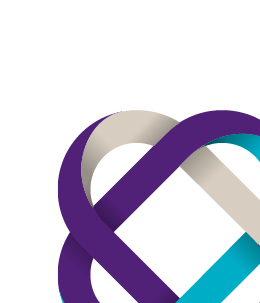-
Accounting Advisory
Our accounting advisory team help businesses meet their complex financial reporting requirements. The team can support in applying new financial reporting standards, IFRS/ US GAAP conversions, financial statement preparation, consolidation and more.
-
Payroll
Our team can handle your payroll processing needs to help you reduce cost and saves time so that you can focus on your core competencies
-
Managed accounting and bookkeeping
Outsourcing the financial reporting function is a growing trend among middle market and startup companies, as it provides a cost-effective way to improve the finance and accounting function. Our team can help with financial statement preparation, consolidation and technical on-call advisory.
-
Accounting Advisory
Our team helps companies keep up with changes to international and domestic financial reporting standards so that they have the right accounting policies and operating models to prevent unexpected surprises.
-
Crypto Accounting Advisory Service
Our team can help you explore appropriate accounting treatment for accounting for holdings in cryptocurrencies, issuance of cryptocurrencies and other crypto/blockchain related accounting issues.
-
ESG Reporting and Accounting
As part of our ESG and Sustainability Services, our team will work with you on various aspects of ESG accounting and ESG reporting so that your business can be pursue a sustainable future.
-
Expected Credit Loss
Our team of ECL modelling specialists combine help clients implement provisioning methodology and processes which are right for them.
-
Finance Transformation
Our Finance Transformation services are designed to challenge the status quo and enable your finance team to play a more strategic role in the organisation.
-
Managed Accounting and Bookkeeping Services
Outsourcing the financial reporting function is a growing trend among middle market and startup companies, as it provides a cost-effective way to improve the finance and accounting function. Our team can help with financial statement preparation, consolidation and technical on-call advisory.
-
Business Tax Advisory
Our business tax team can help you navigate the international tax landscape, grow through mergers and acquisitions, or plan an exit strategy.
-
Corporate Finance
Our corporate finance team helps companies with capital raising, mergers and acquisitions, private equity, strategic joint ventures, special situations and more.
-
Financial Due Diligence
From exploring the strategic options available to businesses and shareholders through to advising and project managing the chosen solution, our team provide a truly integrated offering
-
Valuations
Our valuation specialists blend technical expertise with a pragmatic outlook to deliver support in financial reporting, transactions, restructuring, and disputes.

-
Sustainability with the ARC framework
Backed by the CTC Grant, businesses can tap on the ARC Framework to gain access to sustainability internally, transform business processes, redefine job roles for workers, and enhance productivity. Companies can leverage this grant to drive workforce and enterprise transformation.

-
Business Tax Advisory
Our business tax team can help you navigate the international tax landscape, grow through mergers and acquisitions, or plan an exit strategy.
-
Corporate Tax Compliance
Our corporate tax teams prepare corporate tax files and ruling requests, support you with deferrals, accounting procedures and realise tax benefits.
-
Tax Governance
Our Tax Governance Services are designed to assist organisations in establishing effective tax governance practices, enabling them to navigate the intricate tax environment with confidence.
-
Goods and Services Tax
Our GST team supports organisations throughout the entire business life-cycle. We can help with GST registration, compliance, risk management, scheme renewals, transaction advisory and more.
-
Transfer Pricing
Our Transfer Pricing team advises clients on their transfer pricing matters on and end-to-end basis right from the designing of policies, to assistance with annual compliance and assistance with defense against the claims of competing tax authorities.
-
Employer Solutions
Our Employer Solutions team helps businesses remain compliant in Singapore as well as globally as a result of their employees' movements. From running local payroll, to implementing a global equity reward scheme or even advising on the structure of employees’ cross-border travel.
-
Private Client Services
Our private client services team provides a comprehensive cross section of advisory services to high net worth individuals and corporate executives, allowing such individuals to concentrate on their business interests.
-
Welfare and benefits
We believe that a thriving team is one where each individual feels valued, fulfilled, and empowered to achieve their best. Our welfare and benefits aim to care for your wellbeing both professionally and personally.
-
Career development
We want to help our people learn and grow in the right direction. We seek to provide each individual with the right opportunities and support to enable them to achieve their best.
Increase in proportion of senior Asia Pacific business roles held by women, as emerging economies drive improvements in diversity
On International Women’s Day, a new report based on Grant Thornton’s annual survey of 5,500 businesses in 36 economies reveals that the proportion of senior business roles held by women in APAC has risen from 23% in 2016 to 25% in 2017. In Singapore, the number is 30%, moving from 26% last year.
This has been driven by improvement in Emerging APAC, which saw the proportion of senior roles held by women rise from 26% in 2016 to 29% in 2017, while Developed APAC remained static at 13%.
However, the percentage of businesses with no women in senior management across APAC has also risen, from 25% in 2016 to 36% in 2017.
The new research also finds that just 25% of senior management roles in APAC are held by women. The APAC countries with the highest proportions of leadership roles held by women are Philippines (40%), Thailand (31%) and Indonesia (46%), while the lowest proportions are reported in Japan (7%), New Zealand (20%) and Australia (23%). In Singapore, that number is 30%, above average.
The importance of gender diversity in senior teams tasked with managing risk.
Lorraine Parkin, Head of Indirect Tax and Supply Chain service in APAC said: “This year businesses across APAC have increased the proportion of senior roles held by women. However, we are still only halfway there, and with the percentage of businesses with no women in senior management also rising it feels as if we’re taking one step forward and one step back. This is a real concern for business growth as it suggests we aren’t maximising the potential out there.”
Globally, Grant Thornton’s data shows developing regions continue to lead the charge on diversity with developed economies lagging behind. Eastern Europe performs best, with 38% of senior roles held by women in 2017 and just 9% of businesses with no women in senior management. Meanwhile the MINT economies (Mexico, Indonesia, Nigeria and Turkey) saw the most improvement, with the proportion of senior roles held by women rising from 24% in 2016 to 28% in 2017 and the percentage of businesses with no women in senior management falling from 36% in 2016 to 27% in 2017.
This is a significant contrast to the major economies of the G7, which have remained static at 22% of senior roles held by women and 39% of businesses with no women in senior management. Developed APAC was bottom of the table with just 13% of senior roles held by women and 54% of businesses with no women in senior management, the worst performance of any region on both measures.
Lorraine also commented: “The data for major economies is discouraging. The reasons for this lack of progress are many and varied, and they depend on the culture of individual businesses and the broader culture of the country or region in which they sit. However, this year we encountered a concerning sense that the issue has plateaued, as companies perhaps assume the diversity challenge has been dealt with. The evidence tells us this is not the case.
How we more forward
“Companies today need to be more productive, more innovative and in many ways more open if they are to grow. Diversity will be key to their success. Those that remain closed are putting themselves at risk of not tapping into their full potential, and losing access to diversity of thinking.”


